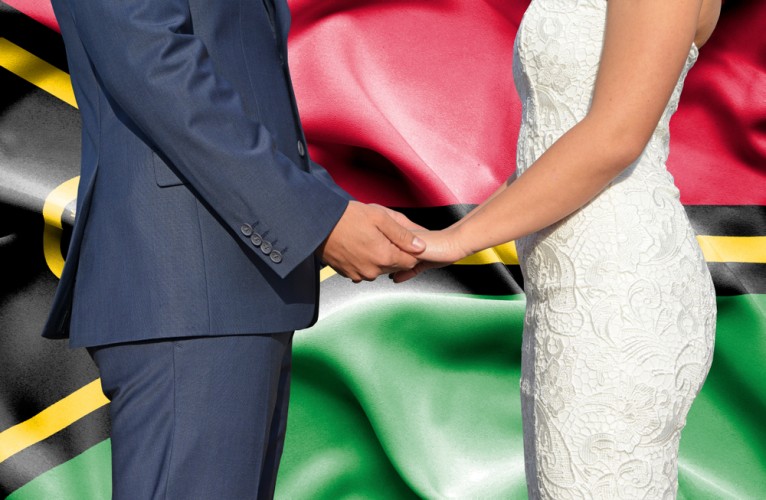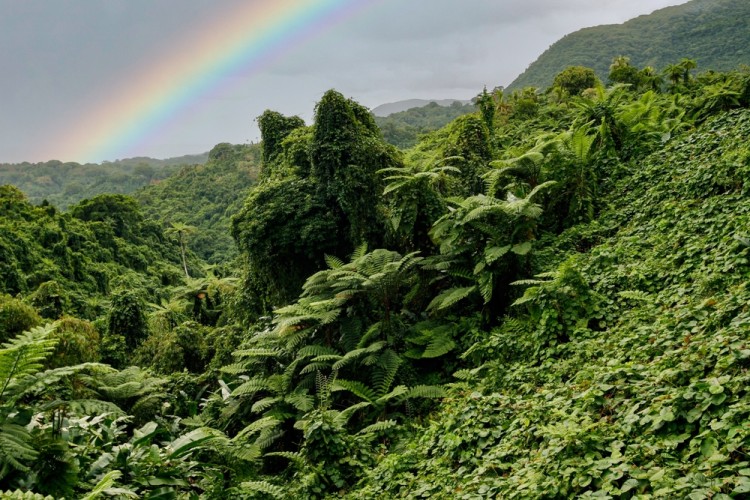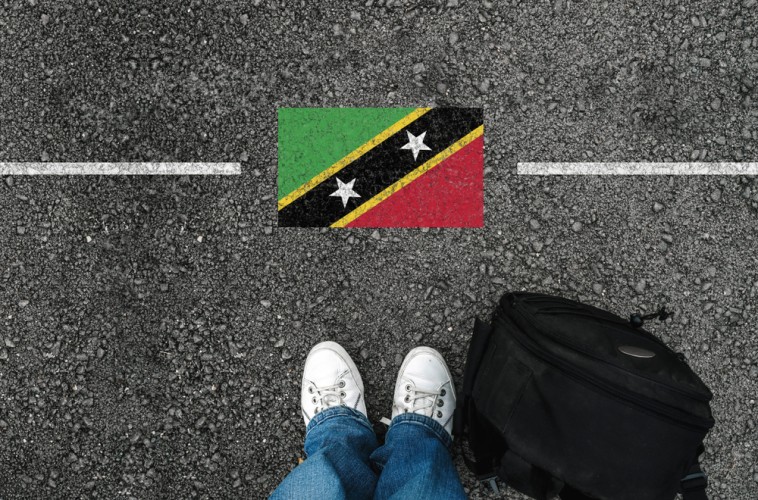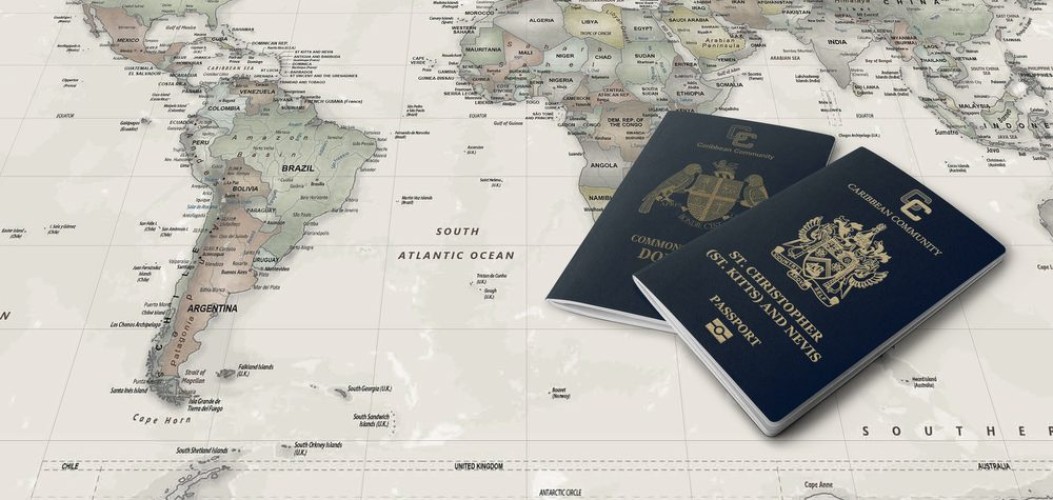Island overview
A small island nation located in the Caribbean Sea, Saint Lucia attracts with its unique natural beauty, rich history and diverse culture. This place is known for its stunning white sand beaches such as Anse Lazio and Anse Julien, where you can enjoy crystal clear waters and picturesque sunsets.
The island has a rich heritage, starting from the time of the Spanish conquistadors and ending with the period of the slave trade. In Vieux Fort, you can see ancient buildings and structures reflecting different eras and cultures.
Colorful carnivals, festivals and fairs take place here, and music and dancing are an integral part of the life of the local population.
Saint Lucia is generally considered a safe destination for tourists and residents, but like any place, it is essential to remain aware of your surroundings and take common-sense precautions.
Saint Lucia is a safe destination, especially in well-populated tourist areas. By following basic safety guidelines and staying informed, visitors can enjoy their stay on this beautiful island with peace of mind.
History of St Lucia
Saint Lucia, originally inhabited by the Arawak and Carib peoples, was first sighted by Europeans in the late 15th century. The island experienced frequent power struggles between the French and British throughout the 17th and 18th centuries, changing
hands 14 times.
The British ultimately gained control in 1814 following the Treaty of Paris. Saint Lucia’s economy was historically based on sugar plantations worked by enslaved Africans until the abolition of slavery in 1834.
The island transitioned from a British Crown Colony to an associated state in 1967 and finally achieved independence on February 22, 1979. Today, Saint Lucia has diversified its economy to include tourism and offshore banking, while maintaining political stability and cultural diversity.
Attractions
Saint Lucia is renowned for its stunning natural beauty and vibrant attractions. The island is dominated by the Pitons, two volcanic mountains, Gros Piton and Petit Piton, which are a UNESCO World Heritage Site and offer breathtaking views and challenging hiking trails.
Another major attraction is Sulphur Springs near Soufrière, known as the world’s only drive-in volcano, where visitors can enjoy therapeutic mud baths in the hot springs.
The Diamond Falls Botanical Gardens feature a beautiful waterfall cascading over mineral-rich rocks, creating unique water colors amidst a variety of tropical plants and flowers.
Additionally, the island’s many beaches, such as Reduit Beach and Anse Chastanet, provide perfect spots for relaxation and water sports. Saint Lucia also offers rich cultural experiences in its capital, Castries, with its bustling markets and historical landmarks.
Saint Lucia enjoys a tropical climate, characterized by warm temperatures and plenty of sunshine year-round. The island experiences two main seasons: the dry season and the wet season.
Overall, the weather in Saint Lucia is warm and inviting, making it a year-round destination for travelers seeking a tropical paradise. The island’s lush landscapes and vibrant culture can be enjoyed in any season, though visitors might prefer the dry season for its more predictable and comfortable weather conditions.
Real Estate
Saint Lucia’s real estate market offers a diverse and attractive range of properties, appealing to both investors and those looking to purchase vacation homes or retire in a tropical paradise.
The island boasts luxury villas and condos in prime coastal areas with stunning ocean views and amenities like private pools and access to golf courses and marinas.
Residential options vary from modern homes in gated communities to charming plantation-style houses, catering to different budgets. Additionally, there are opportunities to purchase land for development, ideal for custom homes or commercial properties such as resorts.
The real estate market has shown steady growth, driven by increased tourism and foreign investment. Saint Lucia’s Citizenship by Investment (CBI) program allows investors to obtain citizenship by purchasing approved real estate with a minimum investment of $300,000, offering benefits like visa-free travel and potential tax advantages.
Popular areas include Rodney Bay, known for its marina and dining, Cap Estate with its luxury properties, and Soufrière, home to the famous Pitons. The island’s favorable tax regime, transparent legal system, and potential for rental income make it an appealing destination for real estate investment.
Citizenship by Investment
The main goal of the program is to provide an opportunity to become citizens of the positive side and take advantage of all the benefits.
At the same time, it also requires the fulfillment of certain obligations. The main thing is to contribute to the development of the country’s independence, which is approved by the government.
Benefits of the Citizenship by Investment Program
Saint Lucia’s Citizenship by Investment (CBI) program offers numerous benefits to investors and their families. Here are some key advantages:
- Visa-free travel: Citizenship of Saint Lucia gives you the opportunity to travel visa-free to more than 148 countries, including all the countries of the Schengen Agreement, the United Kingdom and many others.
- Low residence requirements: Unlike many other citizenship by investment programs, the Government of Saint Lucia does not require you to reside in the country for a certain amount of time. This makes the process of obtaining citizenship more flexible and convenient for many people.
- The fast process of obtaining citizenship: Thanks to simplified procedures and the absence of the need to live in the country, you can obtain citizenship of Saint Lucia in 4-5 months.
- Investment requirements: To obtain citizenship of Saint Lucia, you need to invest a certain amount in government bonds or real estate. The minimum investment amount is only $100,000, which is significantly lower than many other options.
- Return on investment: Investments in real estate in Saint Lucia can be returned after 5 years, after which you become the rightful owner of the property.
The unique Saint Lucia passport program for those who invest in the development of the economic system of the state implies that those who wish must make a significant economic contribution to national development. At the same time, they also learn their advantages. The main one is citizenship. But it’s not all that simple here either. Before obtaining a permit, you will have to undergo a fairly strict check, submit a standard set of documents and prove your reliability. A similar check is also carried out by members of the family, for whom it is also planned to issue a passport. The regulation of the program is the Law on Citizenship through Investment No. 14, adopted in 2015.
Conditions for acquiring citizenship for investment
To obtain Saint Lucia’s’ citizenship by investment, The primary applicant must be an adult to become a citizen. Several options are available:
- Applicant applying with up to three qualifying dependants : $240,000.
Each additional qualifying Dependant (under 18 years of age) : $10,000.
Each additional qualifying Dependant (above 18 years of age) : $20,000.
Newborn child of a citizen who is 12 months of age or below: $5,000.
Spouse of a citizen : $35,000.
Qualifying Dependants of a citizen other than a spouse: $25,000. - Investment in an approved Real Estate project : Applicant and any number of qualifying Dependants – $300,000. Plus applicable administration fees.
- Investment in an approved enterprise project : Applicant applying with up to three qualifying Dependants – $250,000. Plus applicable administration fees.
Family members can be included in the application for St Lucia citizenship. The main investor can include:
- Spouse
- Dependent Children
- Dependent parents over 55 years
- Siblings under 18 years old
All applicants will need to be of good character and undergo the Governments due diligence formalities: Investors must provide
- Police Reports – evidence of a clean criminal record
- Have no outstanding visa refusals
- Various documentation, including financial documents, employment/ business documents, ID, proof of address
It is important to note that requirements and conditions may change, therefore, before starting the process, it is recommended to contact us to get the up-to-date information.
Features of acquiring citizenship for investment
The CBI provides a unique opportunity for wealthy foreigners who wish to obtain a second passport and access to the benefits of European citizenship to become participants in this program.
he government agency that administers the programme reviews the applications submitted by citizenship applicants. The CIU checks whether a person is trustworthy, reject the application if the candidate indicates false information in it.
Here are the main criteria and requirements for participation in the program:
- At least 25 years old at the time of application.
- No criminal record.
- The ability to confirm the legal origin of funds.
- The absence of a threat to the national security of the country.
- Willingness to invest a certain amount in real estate or the state fund of the country.
To participate in the program, investors must purchase a certain type of property in Saint Lucia. Qualifying real estate ventures fall into these classifications:
- Luxury, branded hotels and resorts
- Exclusive, upscale boutique establishments
Ownership of the property is transferred to the investor through a title deed.
In addition, program participants can invest in government bonds of the country, which is also one of the ways to obtain citizenship. However, real estate investments are the most popular and widespread among investors, as they provide not only citizenship, but also the opportunity to own their own housing in the paradise of the Caribbean Sea.
The procedure for obtaining Saint Lucia’s’ citizenship by investment includes several stages:
- Filling out an application for citizenship and collecting the necessary documents;
- Due Diligence;
- Attracting investments in the country’s economy.
The first thing you need to do is fill out an application for citizenship of Saint Lucia and provide the necessary documents.
To be tested for reliability and lack of criminal records in the country of origin and Saint Lucia You will have to go through a Due Diligence check made by the Island Authorities.
The whole process takes about 4-6 months. However, it is worth considering that the period may increase if additional checks are required or if there are problems with documents. Therefore, it is recommended to start the process in advance to avoid delays and save time.
At the end of the procedure, the investor receives a certificate of naturalization, which confirms the acquisition of citizenship.
In 2024, the processing time for applications to Saint Lucia’s Citizenship by Investment program is approximately 4-6 months from the submission date to the Citizenship by Investment Unit (CIU). Applicants typically spend about 2-6 weeks beforehand to gather all necessary documentation. Osher Advisors dedicated experts team will advise applicants throughout the entire process, applications can be submitted remotely without the need for travel.
No, you do not have to live in Saint Lucia to become a citizen through the Citizenship by Investment (CBI) program. One of the significant advantages of Saint Lucia’s CBI program is that there is no residency requirement before or after obtaining citizenship. This flexibility allows investors to obtain citizenship without the need to relocate or spend time in the country.
To apply for citizenship by investment in Saint Lucia, you will need to submit several documents to support your application. These documents help verify your identity, background, and eligibility for the program. Here is a list of the required documents:
Personal Documentation
1. Passport:
– Certified copy of the passport for all applicants, including dependents.
2. Birth Certificate:
– Certified copy of the birth certificate for the main applicant and all dependents.
3. Photographs:
– Recent passport-sized photographs of all applicants.
4. National ID Card:
– Certified copy of the national identity card (if applicable).
5. Proof of Address:
– Utility bills or bank statements showing the current residential address.
Legal and Financial Documentation
6. Police Clearance Certificate:
– Police clearance certificate from the country of residence for all applicants over the age of 16.
7. Marriage Certificate:
– If applicable, a certified copy of the marriage certificate.
8. Divorce Certificate:
– If applicable, a certified copy of the divorce certificate.
9. Financial Statements:
– Bank statements for the past three to six months.
– Proof of source of funds (e.g., tax returns, salary slips, business financials).
10. Employment/Business Documentation:
– Employment letter or business registration documents if applicable.
Health Documentation
11. Medical Certificate:
– Medical certificate stating that the applicant and dependents are in good health and free of contagious diseases.
Investment Documentation
12. Proof of Investment:
– Documentation proving the investment in the National Economic Fund (NEF), real estate, government bonds, or an approved enterprise project.
Application Forms
13. Completed Application Forms:
– Completed and signed application forms provided by the Citizenship by Investment Unit (CIU).
Additional Documentation
14. References:
– Professional and personal reference letters.
15. Affidavit of Support:
– An affidavit of financial support if including dependents who are financially reliant on the main applicant.
### Other Requirements
16. Curriculum Vitae (CV):
– A detailed CV for the main applicant.
17. Notarized Documents:
– Any additional notarized documents required by the CIU or as specified by the authorized agent handling the application.
These documents ensure a thorough vetting process and help establish the applicant’s eligibility and compliance with the program requirements. It is advisable to work with a licensed agent to ensure all documents are correctly prepared and submitted.
For the most accurate and detailed information, Get a free consultation from one of our experts today.
The main economic sectors in Saint Lucia include tourism, agriculture, manufacturing, and offshore banking. Tourism is the largest sector, with visitors attracted to the island’s beautiful beaches, resorts, and natural attractions such as the Pitons and Sulphur Springs. Agriculture, particularly banana production, also plays a significant role in the economy. Manufacturing includes the production of clothing, electronics, and beverages. The offshore financial sector offers banking and financial services to international clients.
Saint Lucia has a healthcare system that includes both public and private healthcare facilities. The public healthcare system provides basic medical services through a network of health centers, district hospitals, and the main public hospital, Victoria Hospital. These facilities offer general medical care, emergency services, and specialist care.
In addition to the public healthcare system, there are private clinics and hospitals that offer more comprehensive and specialized services. The Tapion Hospital and the Saint Lucia National Wellness Center are examples of private healthcare facilities that provide high-quality medical care.
Healthcare services in Saint Lucia are generally affordable, but the availability of advanced medical treatments and equipment can be limited compared to more developed countries. Many residents and expatriates choose to have health insurance to cover the costs of private healthcare or to seek treatment abroad for more complex medical issues. Overall, Saint Lucia’s healthcare system strives to meet the needs of its population, but improvements and investments are ongoing to enhance the quality and accessibility of medical care on the island.






